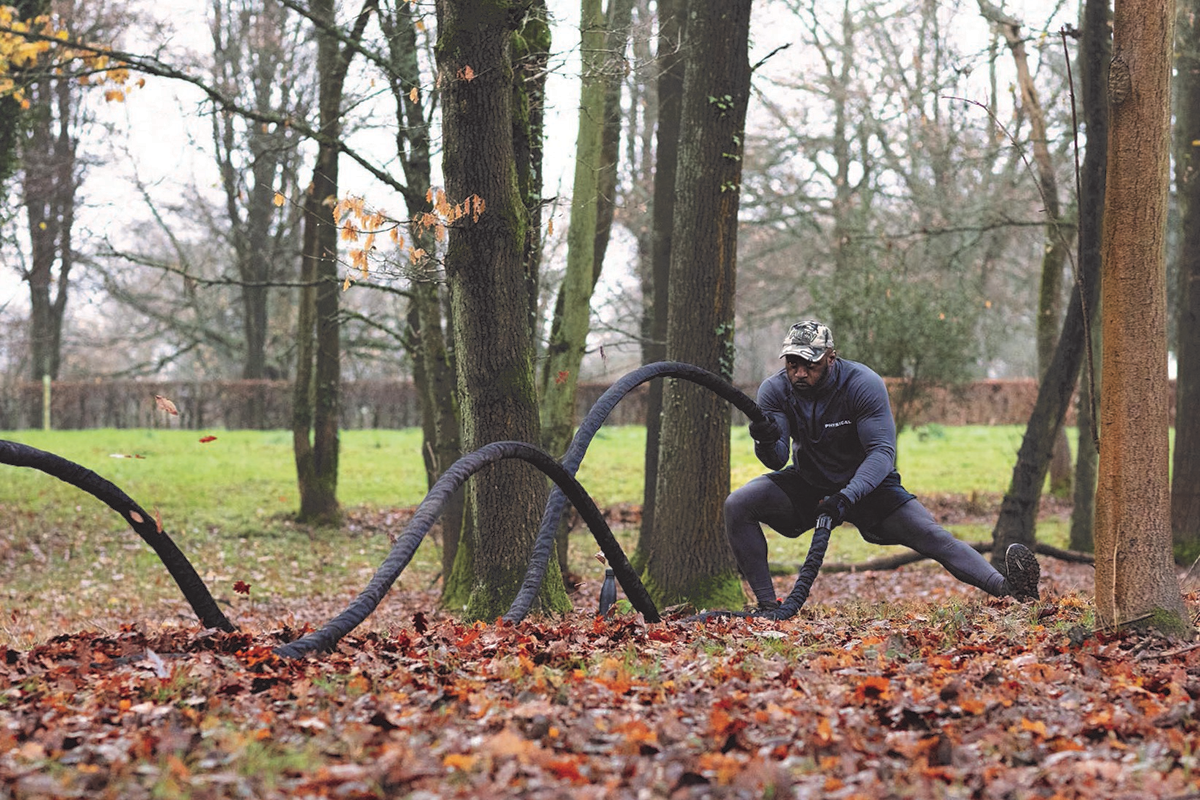Promoting activity
Physical inactivity is a large contributor to lifestyle diseases such as cancer, heart disease and diabetes. But how can we get people moving – and is it time for a top-down intervention?

A fresh approach to public health is needed to tackle the lifestyle diseases caused largely by smoking, drinking alcohol, physical inactivity and obesity – so says a recent paper by leading academics published in Critical Public Health.
In the report, Theories of practice and public health: Understanding (un)-healthy practices, the authors explain how social practices reinforce each other. For example, getting a takeaway on a Friday night is often coupled with watching TV. Similarly having a cigarette on a tea break.
The report criticises current behaviour change models, which presume individuals are capable of making better choices on the basis of information they receive. The authors – claiming that humans respond to their immediate environment more strongly than they do information – argue that public health policy should focus on how social practices interact to inform behaviour (see also p3).
For example, although smoking continues to be a problem, the report points out how the 2007 ban on smoking in public places successfully decoupled the relationship between smoking and eating out in restaurants, in turn helping break the habit for many smokers.
If we really want to get people active, do we need to look for the fitness industry’s equivalent of the smoking ban – something to help ensure being active becomes the new habit? It’s an attention-grabbing notion, but as Kate Cracknell asks on page 3, is it realistic to think we can ban people from sitting down?
In line with the report’s findings that humans respond to their immediate environment more strongly than they do information, Cracknell instead suggests: “If we’re going to legislate, let it be for activity rather than against inactivity: making leisure statutory, making active design a compulsory part of urban planning, and creating a national exercise incentive scheme.”
What more can the fitness industry do to change behaviour and promote active lives? Is it in fact time for a top-down intervention – and if so, what are the options? We ask the experts....
DR Paul Chadwick,
Consultant clinical and health psychologist,
Momenta

“Behind the idea of making it ‘socially unacceptable’ to be physically inactive is the notion that creating a stigma about being inactive will motivate people to do more. In reality, stigma inhibits behaviour by invoking the emotional experience of shame. Stigmatising health-related behaviours can be counterproductive: when overweight individuals are exposed to negative comments about their size or eating habits, this results in a chain of behavioural, emotional and thought processes that usually lead to increased weight gain, as well as poorer physical and emotional health.
Behavioural science suggests a more successful strategy to increase physical activity would be to help people connect with reasons for wanting to be active, as opposed to making them feel bad about failing to be so. This may require more than simply endlessly reinforcing the health benefits of being active. Helping people to identify how being active helps them achieve other valued personal goals, such as being a good parent or member of their community; exposing them to a variety of credible role models; and ensuring they have easy access to a diverse range of activities will all contribute to a positive and shame-free cycle of greater engagement.”
David Stalker,
CEO,
ukactive

“Idon’t think we should be waving a stick to make people be active. For so many people, engaging in physical activity is heavily linked with their emotional state: many sedentary people find it difficult to exercise because they suffer from low mood. We need to find a way to encourage them into the virtuous circle of feeling good and wanting to exercise, thanks to the endorphins and serotonin released by physical activity.
Stealth is a good way of getting the physical activity requirements in without having to wave a stick. For example, the majority of commuters in London hit minimum physical activity requirements via commuting and getting about on the tube. Most don’t even realise they’re doing it. Transport for London has the evidence to back this up and it’s fascinating.
The other thing is incentivising people. What if Oyster cards were embedded with a chip which read your steps, so every time you scanned it your steps were logged and converted into money off your ticket? Meanwhile, the average Brit will spend almost 50 hours a week at work, so employers have a role to play in ensuring activity becomes a natural, easy choice: offering age-appropriate fitness tests, as well as programmes and incentives for staff to reach the physical activity requirements.”
Dr Justin Varney,
National lead for adult health and wellbeing,
Public Health England

“The reasons people are inactive are complex, so demonising inactivity is not the most effective approach to encourage people to make positive choices. Past practice shows it takes a trio of actions to change activity levels for the long term: nationally sustained leadership over different parliaments; social and public sector action to engage communities with community development initiatives; and changing our built environment so being active is the easy choice.
If we want to change the nation’s attitudes to activity, it’s about facilitating activity rather than legislating against inactivity. We need to make activity the easiest option so it becomes the default choice, facilitating ways everybody can be active every day.
The health and fitness industry should be providing high quality support through trained professionals who have qualifications in behaviour change. We need to break down social barriers that may prevent people from being active, and we need professionals to bring exercise into the community, conducting classes in community centres and building relationships with partner agencies that understand specific issues, such as diabetes, or barriers facing certain groups such as ethnic minority communities.”
Dr Mark Uphill,
Senior lecturer sport & exercise psychology ,
Canterbury Christ Church University

“I believe the carrot is more effective than the stick when it comes to encouraging healthy behaviours, so I don’t think we should be looking for physical activity’s equivalent of the smoking ban.
I think the current health message is already too aligned to the stick approach. It’s important people aren’t made to feel guilty about not exercising, because this promotes negative behaviours. If people are choosing the pub over the gym on a Friday night, maybe they could simply be persuaded to walk to and from the pub?
In terms of messaging, while ‘exercise as medicine’ works for some, it doesn’t work for all. To complement this and reach individuals not persuaded by the ‘exercise pill’, health and fitness operators could emphasise the short-term and immediate benefits of exercise, such as psychological restoration, better sleep, less stress and time out of hectic schedules.
What could be done at a government level would be to appoint a national physical activity co-ordinator – someone responsible for long-term strategic development of promoting physical activity and the co-ordination of all ongoing initiatives. This would need to be backed up by cross-party agreements and take a strategic and long-term view.”

Duty Manager
Duty Manager Golf and Athletics
Leisure Centre Duty Manager
Leisure Supervisor (Development)
Recreation Assistant (Dry Site)
Party Leader
Cleaning Assistant
Duty Manager
Duty Manager
Centre Manager (Leisure)
Director of Operations
Fitness Motivator
Recreation Assistant/Lifeguard (NPLQ required)
Recreation Assistant
Swim Teacher
Swim Teacher
Chief Executive Officer, Mount Batten Centre
Swimming Teacher
Swimming Teacher
Company profile

Featured Supplier

Property & Tenders
Company: Knight Frank
Company: Belvoir Castle
Company: AVISON YOUNG
Company: London Borough of Bexley
Company: Forestry England














